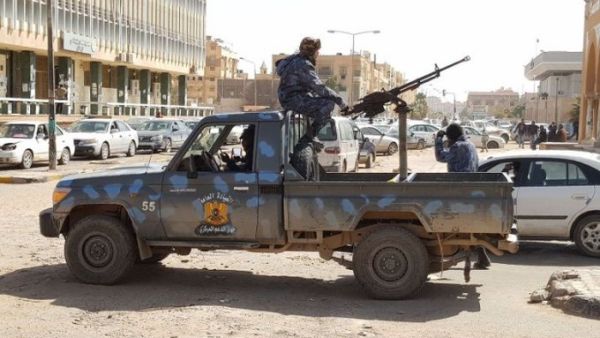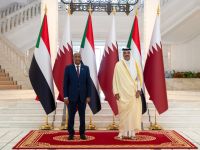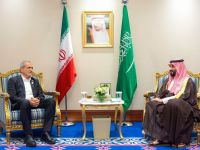The Government of National Accord's delegation to Geneva has announced the Libyan National Army’s (LNA) refusal to withdraw from the capital, Tripoli.
The head of the delegation to the 5+5 Joint Military Commission (JMC) talks in Geneva, General Ahmad Abu Shahma, said he has negotiated with the UN delegation a ceasefire throughout the Libyan territory.
He explained in TV statements on Monday that his delegation negotiated the return of displaced citizens and an end to bloodshed among Libyans.
He accused the other side of being intransigent, referring to the LNA delegation’s stance, which refuses the evacuation of residential areas from armed manifestations.
“We didn’t reach or sign any agreement due to the LNA delegation’s position.”
Pro-GNA local media has quoted a source familiar with the matter as saying that the GNA delegation had put a basic condition, which is the withdrawal of “aggressors” to their positions before April 4, noting that negotiations were not direct between the two delegations.
In other news, heavy clashes erupted on Tuesday between Marshal Khalifa Haftar’s LNA forces and Fayez al-Sarraj’s GNA forces in Qasr Bin Ghashir neighborhood.
Pro-Sarraj militias tried to breach a ceasefire agreement west the airport but were deterred, an LNA source told Asharq Al-Awsat.
Sarraj government’s “301 Infantry Battalion” released a video of its forces targeting LNA forces in al-Hadabah project area.
It said in a statement that its forces managed to hit the military target, without causing major damage to civilians’ homes.
Meanwhile, US Ambassador to Libya Richard Norland met Monday with GNA’s Interior Minister Fathi Bashagha and reiterated his country’s support for the ongoing efforts made by Libyan authorities to dismantle and disarm militias.
“Such militias represent a serious threat to building a strong, democratic, and unified state in Libya,” he warned in a statement.
Bashagha explained that his government’s work is in accordance with a classification made during a recent meeting in the US and includes 14 points.
It was divided into three colors, “red, orange and yellow,” which represented the extent to which these militias pose threats that hinder the country’s reconstruction.
He also announced receiving an official invitation from France’s interior minister to visit his country. This was made during separate meetings with two delegations from the French and British foreign ministries.
The meetings addressed the current situation and security issues related to the fields of combating terrorism, organized crime, and illegal immigration, in addition to the outcomes of the Berlin conference and a number of topics of common interest.
This article has been adapted from its original source.








